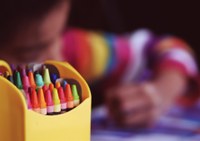Why Schools Are Teaching Our Kids “Social Justice”
We mistake what is, in fact, an entire worldview for a set of fringe ideas dealing with socially important issues like racism, sexism, and transgender rights. Most of us see “Wokeness,” in other words, as something that’s probably mostly good or, at worst, well-intentioned and benign.
When it comes to our children’s schools, then, many of us will conclude that it’s necessary and important in our modern, progressive world for our children to learn about these sorts of issues, and we trust our educators to communicate important truths about them so our kids can keep doing the good work of building a better society.
This kindly liberal view, borne from a combination of good intentions and being too busy to learn otherwise, misunderstands the Critical Social Justice ideology at the most fundamental level, however. It therefore completely misses the specific mission woke people—and woke educators—have for our society and our children. The crux of that mission is hiding in plain sight in the word “woke” itself, and it has everything to do with why we should be opposed to seeing these ideas featured in our educational system.
The mission of Critical Social Justice, to use its right name, is to “awaken” people to the so-called “realities” of systemic oppression in society, as it defines it—thus, “woke.” People who are woke are people who have been trained to see systemic oppression in a particular way, which has been outlined in an otherwise obscure branch of philosophy known as Critical Theory. Speaking formally, the Woke are people who have developed a “critical consciousness” about the identity-based systems of power that are alleged to permeate and define all of society, creating profound and almost intractable injustices that must be “disrupted and dismantled” to achieve “liberation.” The goal of “anti-racist,” “culturally aware,” and “social justice” approaches to education is to awaken a critical consciousness in our children so that they will grow up not to think critically but to think in terms of Critical Theories.
To understand why this isn’t just a problem but an incredibly alarming one requires understanding how the Critical Theories in Critical Social Justice see the world. That is, you have to understand what your kids will be “woke up” to in their classrooms.
To take the issue of race, Critical Race Theory begins with the assumption that racism is ordinary in our societies and present in all interactions and social and cultural phenomena, and it is up to the Critical Race Theorist—using a Woke critical consciousness—to “make it visible” and “call it out.” In Critical Race Theory, the question is not “did racism take place?” but rather, “how did racism manifest in that situation?”
Rather than learning how to do mathematics, then, your children will be taught to ask questions like how mathematics is used to maintain racial oppression—for it must, according to Critical Race Theory. This is precisely the sort of curriculum that we already see in the Ethnic Studies program in the state of Washington and its “ethnomathematics” project. Rather than focusing on the mechanics of mathematics, students will be taught to focus on the ways they can explore topics like racism and oppression through mathematics, or leaning on math as a foil that facilitates discussions on important topics—like “who it benefits” to focus on getting right answers in mathematics.
Other subjects will be similar, if not worse. A Critical Theory approach to studying American history will be dedicated to making students woke to all of the ways the United States, from its founding, has been an unjust, oppressive nation that systemically oppresses certain identity groups. This shouldn’t be understood to be part of a balanced program that reckons honestly with the darker aspects of our national past as framed against the liberal promises that eventually—and painfully—have won great freedom and equality to our diverse citizenry. It will be a sustained program of teaching our children how America is a horrible nation that has never been able to or even wanted to live up to its promise of all men having been created equally, as individuals. “Whiteness is property,” they will instruct, and that property is theft—slogans we have heard repeated as justifications for race-based riots throughout this ugly summer.
Indeed, many such programs will claim that the United States was founded intentionally on genocide, slavery, and a principle of white supremacy and anti-Blackness that has never been repaired. Its legacy is white privilege and white comfort that must be challenged at every opportunity if we are ever to achieve racial equity. Already, at least in the state of California, a proposed – although rejected – curriculum would teach these lessons not as history but as “hxrstory,” where “his” has been replaced by an explicitly “non-binary” formulation of “her,” so that maleness and cisheteronormativity won’t accidentally be centered in the term. (By the way, “his-story” isn’t even the genuine etymology of the word history, but Critical Theory looks for oppression hidden in unlikely symbols, even when it doesn’t make sense.)
Bringing Critical Social Justice into our educational systems is therefore not beneficent or benign. It is a deliberate attempt to try to program our children to think in an explicitly cynical, pessimistic, and falsely sociological way about all matters relevant to identity in every possible subject, including our history and even science and mathematics. The goal is to make our children woke, to give them a critical consciousness with which they will, unlike their parents, know that the point of understanding society is to change it in a very narrow and increasingly divisive way.
Editor’s Note: This article has been revised to clarify that a proposal to rename “history” “hxrstory” in California was rejected.

